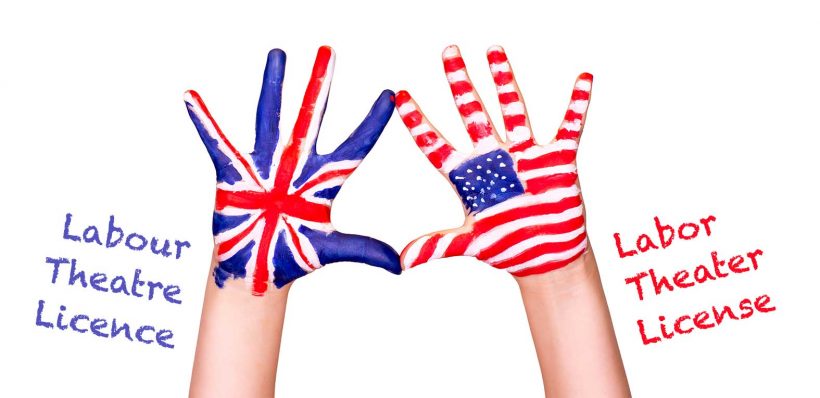English is a very important language in our society, since it allows us to communicate worldwide. No matter where we are, if we speak English we’ll be able to talk with nearly everyone in the world.
English, though, is a very tricky language for those who study it when it comes to understand native speakers. There are dozens of accents and different ways to pronounce the same word. Sometimes, even mother tongues have difficulties in understanding each other. The major difference is, obviously, between British and Amercian English (even though the accents change from region to region, like Scottish, Canadian, Australian, Welsh…).
At school we learn to speak in British English (which I like most, actually), but when we travel abroad or when we see a film, we are more likely to hear an American accent. Here are the most important differences between British English and American English.
Vocabulary
There are many different words between British and American. Some are well-known, like ‘biscuit’ (BrE) and ‘cookie’ (AmE), while others are less known.
BrE: Aubergine – AmE: Eggplant (melanzana); braces – suspenders (bretelle); catapult – slingshot (fionda); chips – French fries (patatine fritte); crisps – chips/potato chips (patatine); dustbin – garbage can (cestino dell’immondizia); fish finger – fish stick (bastoncino di pesce); ground floor – first floor (piano terra); footway/pavement – sidewalk (marciapiede); holiday – vacation (vacanza); jumper – sweater (maglione); lift – elevator (ascensore); stag night – bachelor party (addio al celibato); underground – subway (metropolitana); wardrobe – closet (armadio); pedestrian/zebra crossing – crosswalk (strisce pedonali).
Spelling
The spelling of some words changes from BrE and AmE, such as ‘favourite – favorite’. This happened because English has got many of its words from others languages: Brits kept the original spelling, while Americans adapted the spelling to the pronunciation they use.
British words that end in -re often end in –er in American English: centre – center; theatre – theater
–our changes in –or: colour – color; neighbour – neighbor (vicino di casa)
Words which end in –ise or -yse become –ize or -yze: organise – organise; analyse – analyze
–ence becomes –ense in AmE: defence – defense; offence – offense
In British English, verbs that end with a vowel plus l double the l when adding a subfix. In American English this doesn’t happen: travelled – traveled; travelling – traveling
Pronunciation
British and American English have a lot of differences, but this is probably the one we notice first. When you start to study English it’s difficult to recognize different accents, but this ability comes with practice and patience. I started to hear some differences when I began to watch TV series in English, and this is also what I suggest you to do. With subtitles, obviously, but it helps really a lot! Once you get used to the accent you hear on TV, you’ll immediatly notice if you hear a different one. And so on, from British and American you’ll learn also Scottish, Australian, etc…
English has got a more closed pronunciation, while American tends to use more open vowels and sounds. Many stresses (accenti) pass to one syllable to another. For exapmple, many verbs ending with –ate (like locate and translate) are stressed on the first syllable in British English and on the second one in American English. Many vowels are pronounced differently. In words like ‘cat’ and ‘dad’ the letter a is pronounced more like an Italian a in BrE and more like our è in AmE.
Anyway, despite all the differences, English is always English: a language that connects all people around the world.

